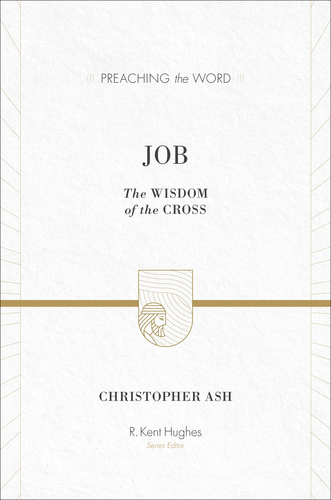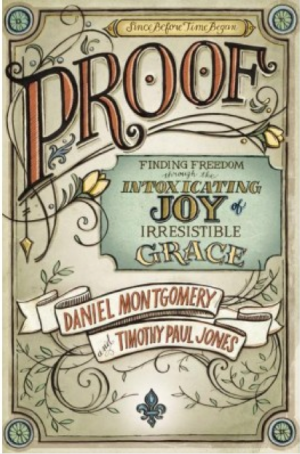Justin Taylor's Blog, page 103
June 11, 2014
Should Augustine’s Name Should be Pronounced *AW*-gus-teen or aw-*GUS*-tin?
 David Horner, professor of biblical and theological studies at Biola University, seeks to answer the age-old dispute:
David Horner, professor of biblical and theological studies at Biola University, seeks to answer the age-old dispute:
[W]hile consideration of the Latin original of Augustine’s name does not determine a single, grammatically obligatory English pronunciation, it does suggest that aw-GUS-tin is the more fitting or appropriate pronunciation. This is because the latter most closely preserves the distinctive placement of the accent in the original. As we have seen, Augustine’s Latin name is properly pronounced ow-goost-EE-nus, with the accent on the penultimate syllable. The pronunciation of aw-GUS-tin preserves that accent pattern: when the final syllable is dropped from the Latin name in forming the anglicized name, aw-GUS-tin retains the accent on the penult rather than wrenchingly shifting it to the antepenult, as in the case of AW-gus-teen. In this way aw-GUS-tin is closer to the original pronunciation pattern, and it thus constitutes a more natural and appropriate pronunciation. For this reason, the Oxford Encyclopedic English Dictionary, recognized universally as authoritative in things most fine and fitting, lists aw-GUS-tin as the single recommended pronunciation.
You can read the whole thing here, humorously written in the style of a medieval disputation in response to a piece in a similar vein written by his colleague Garry DeWeese.
N.T. Wright on Gay “Marriage”
J. John (Revd Canon) of Philo Trust interviewed New Testament scholar N. T. Wright and asked him about the redefinition of marriage:
HT: Mike Reeves
Matthew Schmitz provides a transcript.
3 Crucial Things to Remember as You Graduate from Seminary
One of the wisest and most pastoral professors I have studied under is Douglas A. Sweeney of Trinity Evangelical Divinity School, chair of the church history and history of Christian thought department, professor of church history and the history of Christian thought, and director of the Jonathan Edwards Center.
He recently delivered the commencement address at Trinity (which you can watch below). His three main points are worth taking to heart by all who are called to the study of God’s Word:
(1) Not even those in the M.Div., the so-called “masters of divinity,” are meant to master divinity. You’re to be mastered by divinity, conformed to the mind of Christ. You’re to take His yoke upon you, to live your lives and do your work beneath the cross of Christ–under the Word of God.
(2) The Lord is not finished with your education yet. Don’t let feelings of inadequacy inhibit you from living a long life of Christian discipleship. We’re meant to be life-long learners, life-long disciples, life-long students of the Lord, His Word and His world.
(3) The Lord has given you all you need to minister words of life to those he places in your care. It’s true: you don’t know it all. You have a lot yet to learn. The things of God are very deep. But you can be confident in the Lord, for He has condescended to give us what we need for our salvation and for godly Christian living.
June 5, 2014
“The Richest, Most Moving, Most Deeply Cross-centered and God-glorifying Treatment of Job I Have Ever Read”
 Christopher Ash’s Job: The Wisdom of the Cross (part of Crossway’s Preaching the Word series, edited by Kent Hughes) is garnering unusual praise for a homiletical commentary:
Christopher Ash’s Job: The Wisdom of the Cross (part of Crossway’s Preaching the Word series, edited by Kent Hughes) is garnering unusual praise for a homiletical commentary:
“Christopher Ash writes beautifully—this book is a delight to read! But that isn’t its greatest strength. Nor is the fact that these pages are filled with nuanced and fresh exegetical insights. Christopher has succeeded in producing the richest, most moving, most deeply cross-centered and God-glorifying treatment of Job I have ever read. This book marries brilliant explanation with powerful gospel-driven application. It is simply a ‘must-have’ resource for anyone intending to preach through Job.”
—J. Gary Millar, Principal, Queensland Theological College; author, Now Choose Life
“This is one of the finest Biblical commentaries I have had the privilege to read, and certainly the best I know on the wonderful but perplexing book of Job. Christopher Ash takes us into the depths of this book, taking no shortcuts. He guides us through the details, helping us to see the brilliance of the poetry and the profundity of the questions raised. More than this he helps us to see how the sufferings of Jesus shed brilliant light into the darkest corners of Job’s experience. In turn the book of Job deepens our understanding of Jesus’ blameless suffering, and the suffering and darkness experienced by those who share in the sufferings of Christ. This is a powerfully edifying exposition.”
—John Woodhouse, Former Principal, Moore Theological College
“If like me, you have shied away from the book of Job, daunted by its structure and length, do not despair, help has arrived! Christopher Ash has performed a noble service by ‘bashing his head’ against the text and providing us with such a lucid, wonderfully helpful commentary. It is both mind-stretching and heart-warming as it reminds us that like the rest of the Bible, Job is ultimately a book about Jesus.”
—Alistair Begg, Senior Pastor, Parkside Church, Cleveland, Ohio
“This is the book for any who, like me, have been both fascinated and frightened by Job. Christopher Ash brilliantly engages with the interpretive challenge of understanding the text and the emotional challenge of being confronted by the awful reality of suffering and evil in the world. His exposition combines sober realism about what we can expect in the life of faith and great encouragement as we are pointed to the sufferings and glory of Christ.”
—Vaughan Roberts, Rector of St Ebbe’s, Oxford, England; Director, The Proclamation Trust; author, God’s Big Picture
“A magnificent study of one of the least read and understood books of the Bible. Here is meticulous, detailed exploration of the text, its vocabulary and poetic structure, which opens up its richness and complexity with interpretive sensitivity. This in turn produces a narrative reading that illuminates the revelatory argument of the book as a whole, with its conflict between redemptive grace and religious systems. ‘Honest grappling’ is its characteristic as the imponderable questions of the human condition are played out through the drama of Job’s individual agony. But this is also a preacher’s book, full of human empathy and applicatory wisdom providing nourishment for the deepest recesses of the soul. Supremely, it is a book not about Job’s suffering, but about Job’s God, which leads us to the ultimate answers to all our human enigmas in the reality of Jesus Christ and him crucified. This is a book to return to again and again as a valuable tool to unpack the message of Job in a generation to whom it is strikingly relevant.”
—David Jackman, Former President, Proclamation Trust, London, England
“This book has reinforced my general rule, ‘If Christopher Ash has written it, I should definitely read it.’ It is an outstanding exposition of this dramatic but difficult book, at the same time eminently accessible, yet profoundly stretching and thought-provoking. As the book’s chapters are opened up masterfully, characteristic attention to textual detail is enriched by a theological trajectory that, like a reverse prism, draws every obscure but colorfully illuminating ray from this ancient story and traces them forward to the pure brightness and clear light revealed in the cross of Christ. The pastoral warmth and power of its message comes from this recognition, that for every believer, ancient or modern, it is the reality of our union with Christ, the Christ who was glorified only through suffering, that offers the deepest explanation of all evil that we may encounter on our road to glory. I commend it most warmly to anyone who wants to dig into the riches of this extraordinary book of the bible.”
—William J.U. Phillip, Senior Minister, The Tron Church, Glasgow
“This commentary is invaluable for personal or group Bible study, and also for preachers. It includes careful study of the text of Job, and the fruits of deep theological and pastoral reflection. It avoids the sadly common question, ‘What is the minimum I need to know to understand the book of Job?’ and instead asks the godly and productive question, ‘What are the full riches that God has provided for us in the book of Job?’ Furthermore, Christopher answers this question in the light of Christ and the gospel. And of course, there is much to learn here about suffering, the pastoral Achilles heel of the Church both in the West and in the two-thirds world. It is a persuasive and powerful tool to help us edify God’s people by expounding the Scriptures.”
—Peter Adam, Vicar Emeritus, St Jude’s Church, Carlton, Australia; author, Speaking God’s Words: A Practical Theology of Preaching
“This expository commentary provides everything a preacher is looking for. The ‘big picture’ is kept clear even as technical detail is explained. The text is set in its Biblical context even as the text is unpacked on its own terms. Application is faithful to the book’s Biblical purpose, acutely insightful and contemporary. It is readable, profoundly pastorally helpful, and above all Christ-centered. I could not commend it more highly.”
—William Taylor, Rector, St. Helen Bishopsgate, London
You can read his outline and sample material here and is available here from Amazon.
Buy Bunyan’s Pilgrim’s Progress and Get Leland Ryken’s Reader’s Guide for Free
June 3, 2014
PROOF: An Interview with Daniel Montgomery and Timothy Paul Jones
 Daniel Montgomery (founding pastor of Sojourn Community Church) and Timothy Paul Jones (professor of leadership at The Southern Baptist Theological Seminary) are the co-authors of a creative and theologically robust new book, PROOF: Finding Freedom through the Intoxicating Joy of Irresistible Grace (Zondervan, 2014).
Daniel Montgomery (founding pastor of Sojourn Community Church) and Timothy Paul Jones (professor of leadership at The Southern Baptist Theological Seminary) are the co-authors of a creative and theologically robust new book, PROOF: Finding Freedom through the Intoxicating Joy of Irresistible Grace (Zondervan, 2014).
Here’s a conversation we recent had about grace and the gospel, and whether or not they are trying to draw people toward or away from Calvinism.
You open the book by talking about how we live in a delusion from which we need to wake up. What are some of the delusions we have about God and grace?
TIMOTHY: Martin Luther once commented that humanity after the fall is no longer able to imagine any way to be made right with God other than works. Our tendency by nature is to slip into the delusion that our standing before God somehow depends on what we do. Or, with a sincere desire to exalt God’s free grace, we overcorrect and slip into another delusion, that what we do doesn’t matter at all.
In the first instance, we diminish the finished work of Christ by living as if God started our salvation by grace but then we have to finish it. In the second instance, we miss the truth that grace doesn’t simply save us, it also changes us. And so, we constantly need to be awakened to the wonder and the beauty of authentic grace–God’s wonderful acceptance of us not because we have earned it or deserved it but because he gives it to us freely in Christ.
The answer isn’t found in trying to balance legalism and license. It’s rather in recognizing that, everything God gives to us, he gives in Christ and that this placement of us in Christ and Christ in us changes everything. United with Christ, we are both captive and crowned, slaves of Christ yet free, already positioned as righteous in Christ yet empowered by his Spirit to pursue righteousness. This is a beautiful paradox to which we need to be constantly reawakened.
What do you see as the five phases of grace?
DANIEL: The five facets of grace described in PROOF are a biblical and theological re-framing and re-envisioning of TULIP. TULIP is a nifty mnemonic device but hasn’t proven to be the most helpful tool, in our estimation, in magnifying the glorious gospel of God’s grace:
Planned Grace re-envisions limited atonement and we begin here because the story of grace begins with a perfect plan in eternity past. Before time began, God mapped out the plan of salvation from first to last. It’s a loving plan made by the Father for a particular people. It’s a victorious plan achieved by the Son for a definite people. It’s an effective and guaranteed plan sealed by the power of the Holy Spirit. God planned to adopt a particular people as his own children; Christ offered himself as a sacrifice for these people’s sins and as a substitute who satisfied God’s righteous requirements in their place. When God makes a plan, he can always pay the price and he never lacks the power to make it happen.
Resurrecting Grace re-envisions total depravity. Everyone is born spiritually dead—we’re the walking dead. And spiritual zombies don’t choose life for the same reason prison escapees don’t show up voluntarily at police stations. Left to ourselves, we will never choose God’s way. God enables people to respond freely to his grace by giving them spiritual life through the power of Christ’s resurrection.
Outrageous Grace re-envisions unconditional election. God saves us not because we’ve earned it or deserve it, but because He freely chooses us at Christ’s expense. God chooses people to be saved on the basis of his own sovereign will. He doesn’t base his choice to give us grace on anything that we did or might do. God’s outrageous grace leaves us with nothing to prove because, in Christ, everything that needs to be proven has already been provided.
Overcoming Grace re-envisions irresistible grace. God works in the lives of his chosen people to transform their rebellion into surrender so that they freely repent and recognize Christ as the risen King. God changes his chosen people one by one so that they abandon rebellion, long for holiness, and freely surrender to Jesus. His plan all along was to call a diverse people from every tribe, tongue, and nation, and then empower them as a community of overcomers.
Forever Grace re-envisions perseverance of the saints. God seals his people with his Holy Spirit so that they are preserved and persevere in faith until the final restoration of God’s kingdom on the earth. As long as we are in Christ, the Father cannot reject his covenant with us without rejecting his beloved Son.
This reframing puts God and his grace at the center. Good theology requires both defense and offense. In our estimation, TULIP is mostly defense, and the mission of grace is far bigger and more beautiful than that.
Some people will read this book and think “they are trying to make everyone Calvinists,” but you guys write that “part of our purpose is to point you away from Calvinism.” Can you explain?
DANIEL: Recently, Jonathan Merritt came out with an article titled, “The Troubling Trends in America’s ‘Calvinist Revival,’” where he essentially claims YRR are isolationists, tribalistic, and prideful. While I don’t necessarily agree with the full assessment, his words are fair in regard to some facts of what we might call “reductionistic Calvinism.” Many who go by the name Calvinist are so concerned with Calvinism that they have overreacted, almost reducing Christianity to the five points of Calvinism.
For a number of years I have assessed potential church planting candidates both in Acts 29 and in Sojourn Network. I’ve interacted with scores of young, passionate men who are ready to start churches that are gospel-centered, Reformed, and misssional. They could, for the most part pass, any confessional test but they don’t know how to do theology. Another way to put it is they have a theological confession but they are without any theological vision. They are lacking a vision of life with God, and the ability to make the connections between what they know and how they can creatively and constructively advance the mission of God in the world.
And this returns us to a rallying cry from the seventeenth-century heirs of the Reformation: Ecclesia semper reformans, semper reformanda: The church, always reforming and always in need of reform.
We have found in our experience and practice in the local church five pathways to ongoing reform.
The five solas were the rallying cries that summarized the Reformation in the centuries after the Reformation. We want to continue those rally cries, while also crying out for more mystery, beauty, paradox, community and mission. In PROOF, we spell out how these are essential for what we believe and for answering what many critics both inside and outside Calvinism see as blind spots.
You argue that when we misunderstand grace, we lose freedom and joy. How does this happen?
TIMOTHY: When we distort grace and see it as approval instead of undeserved favor, our joy is diminished because we miss the truth that God predestined us for a purpose, to conform us to Christ. We tell ourselves, “God loves me and accepts me just the way I am”—which isn’t true at all. God loves us and accepts us not as we are but as Jesus is, and God loves us so much that he refuses to leave us the way he found us.
On the other hand, if we misconstrue grace into a starting-point where our salvation begins but then it’s up to us to keep God’s favor, we end up frustrated and exhausted because we feel like we never can measure up—and we’re right; we can’t. But Jesus measured up to God’s standard in our place, and God has given us the goodness of Jesus himself as a free gift.
Authentic grace sets us free because, in Christ, everything that needs to be proven has already been provided. Freedom and joy come when we simultaneously rest completely in Christ and recognize this rest as the foundation for our active pursuit of holiness.
You both live, teach, and minister in a Southern Baptist context where it’s common to hear the phrase, “once saved, always saved.” What’s your perspective on perseverance—and on the role of the warnings in particular—and why does it matter?
TIMOTHY: It’s true that once someone is saved, that person will always be saved. Yet, unfortunately, the phrase “once saved, always saved” places almost all the emphasis on what happens when we first trust Jesus. That’s not where the New Testament authors place the emphasis when they use the words “saved” and “salvation.”
In the New Testament, “saved” refers primarily to a future and final rescue from divine wrath. But, when someone says “once saved, always saved,” it’s easy to lose sight of the fact that believers are called to persevere to the end and that salvation is both present and future. The warnings in Scripture, particularly in the letter to the Hebrews, are not merely hypothetical. Warnings are one of the means that God uses to secure our salvation by calling his chosen children to persevere and to repent.
On this point, The Race Set Before Us by Tom Schreiner and Ardel Caneday is simply unsurpassed. The Race Set Before Us gives no ground to the delusion that it’s up to us to keep ourselves saved, yet Schreiner and Caneday simultaneously refuse to dilute biblical warnings into mere admonitions about loss of future rewards. They recognize the warnings as real warnings about real eternal consequences without slipping into the false notion that Christians might lose their salvation.
The canons of Dort declare that God preserves his people by means of “gospel exhortations, threats, and promises.” In many instances, we as pastors have provided people with gospel promises and even gospel exhortations but we’ve neglected the gospel threats—the painful truth that, where there is no perseverance in a person’s life, there will be no salvation. This isn’t because faith was forfeited. It’s because faith that fails to persevere was never authentic faith in the first place.
What effect would your understanding of grace have on the way in which we interact with one another?
DANIEL: When we see that our salvation depends on a singlehanded work of God’s grace, we see we have nothing to fear and nothing to prove. God in Christ has already provided every proof we need to be acquitted of every charge against us.
We are free to forgive those who have wronged us because God forgave us when we deserved only hell.
We are free to share with others because we don’t need to hold on to our possessions to impress people around us.
We can confess our sins freely instead of hiding our failures.
We can receive correction without feeling devastated because we know that God’s choice to make us his children was never based on our performance in the first place.
* * *
There authors have put together a number of supplemental resources to go along with the book. Their website has free devotionals and a free Kids Curriculum called “Proof Pirates.” The Proof EP from Sojourn Music holds 7 songs from the book, the first 5,000 downloads are free. They also we have a free kids catechism call “North Star Catechism,” which has much of the language they use in the interview and devotionals.
June 2, 2014
The Mass Delusion of Transgenderism

Regardless of the question of whether he has had his genitals amputated, Cox is not a woman, but an effigy of a woman. Sex is a biological reality, and it is not subordinate to subjective impressions, no matter how intense those impressions are, how sincerely they are held, or how painful they make facing the biological facts of life. No hormone injection or surgical mutilation is sufficient to change that.
Genital amputation and mutilation is the extreme expression of the phenomenon, but it is hardly outside the mainstream of contemporary medical practice. The trans self-conception, if the autobiographical literature is any guide, is partly a feeling that one should be living one’s life as a member of the opposite sex and partly a delusion that one is in fact a member of the opposite sex at some level of reality that transcends the biological facts in question. There are many possible therapeutic responses to that condition, but the offer to amputate healthy organs in the service of a delusional tendency is the moral equivalent of meeting a man who believes he is Jesus and inquiring as to whether his insurance plan covers crucifixion.
This seems to me a very different sort of phenomenon from simple homosexuality (though, for the record, I believe that our neat little categories of sexual orientation are yet another substitution of the conceptual for the actual, human sexual behavior being more complex and varied than the rhetoric of sexual orientation can accommodate). The question of the status of gay people interacts with politics to the extent that it in some cases challenges existing family law, but homosexual acts as such seem to me a matter that is obviously, and almost by definition, private. The mass delusion that we are inculcating on the question of transgendered people is a different sort of matter, to the extent that it would impose on society at large an obligation — possibly a legal obligation under civil-rights law, one that already is emerging — to treat delusion as fact, or at the very least to agree to make subjective impressions superordinate to biological fact in matters both public and private.
As a matter of government, I have little or no desire to police how Cox or any other man or woman conducts his or her personal life. But having a culture organized around the elevation of unreality over reality in the service of Eros, who is a sometimes savage god, is not only irrational but antirational. Cox’s situation gave him an intensely unhappy childhood and led to an eventual suicide attempt, and his story demands our sympathy; times being what they are, we might even offer our indulgence. But neither of those should be allowed to overwhelm the facts, which are not subject to our feelings, however sincere or well intended.
You can read the whole thing here.
Update: John Piper weighs in on the article as well, using Romans 1.
Scholarship as Ministry
Doug Sweeney:
[W]e should practice scholarship as ministry, a form of priestly service intended to bless the larger world. Rather than holding back for fear that other scholars will reject us, it is time for us to reach out and face the consequences of faith, hope, and love within the academy.
It is time to shower attention on those who have no power over us, meeting the needs of junior colleagues before we tend to our CVs, and looking for ways to treat others—especially “the least” of those among us—as though they were better, more important, than ourselves. It is time to tell the truth—the whole truth—about our materials, “outing” ourselves as Christians when the occasion calls for it. We need not drive away our colleagues with annoying, artificial attempts to make a Christian difference, substituting spiritual chatter or religious moralism for painstaking scholarship. But we do need to resist the many professional enticements, institutional incentives, and pecuniary tugs to live as scholarly Nicodemites, practicing Christian faith by night but afraid to show ourselves, or be ourselves, by day. . . .
I think that we can do a better job within the guild of Christian historians to fortify and exemplify the priesthood of believers. We can encourage a deeper faith in God’s vocation on our lives, strengthen one another in our common, priestly service and—precisely in so doing—help each other become much better Christian scholars. Crede, ut intelligas, say the Augustinians. Let us help each other believe in order that we may understand.
—Douglas A. Sweeney, “On the Vocation of Historians to the Priesthood of Believers: A Plea to Christians in the Academy” in Confessing History: Explorations in Christian Faith and the Historian’s Vocation, ed. John Fea, Jay Green, and Eric Miller (Notre Dame, IN: University of Notre Dame Press, 2010), 309, 310.
June 1, 2014
Come Back Soon
Andrew Peterson’s song, “Come Back Soon,” from his album Light for the Lost Boy:
We Should NOT Balance License and Legalism
Justin Taylor's Blog
- Justin Taylor's profile
- 44 followers






